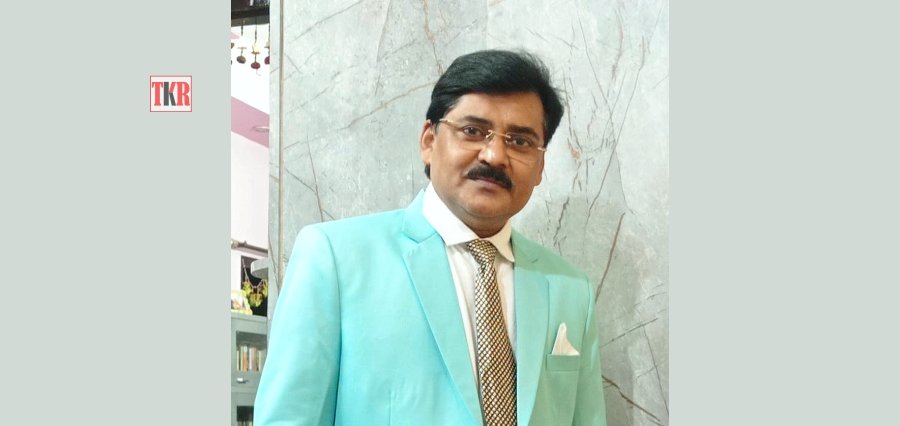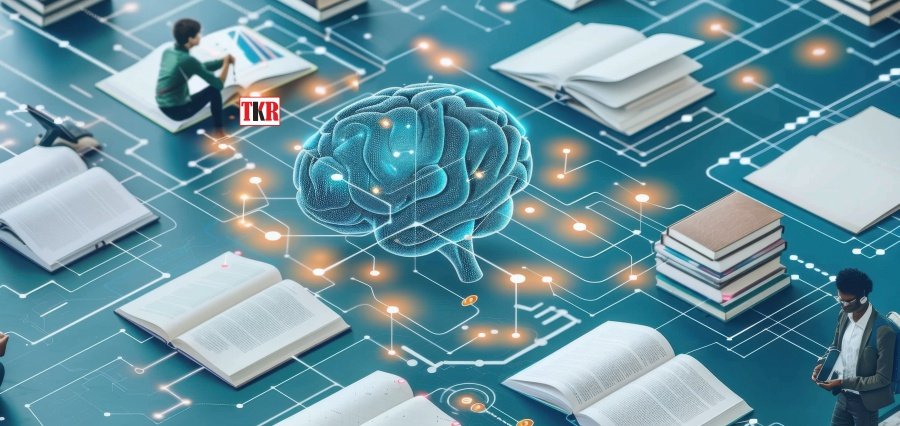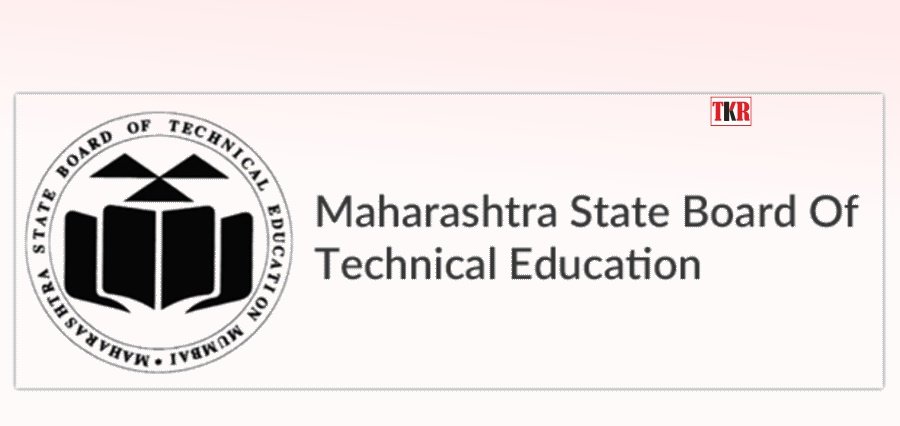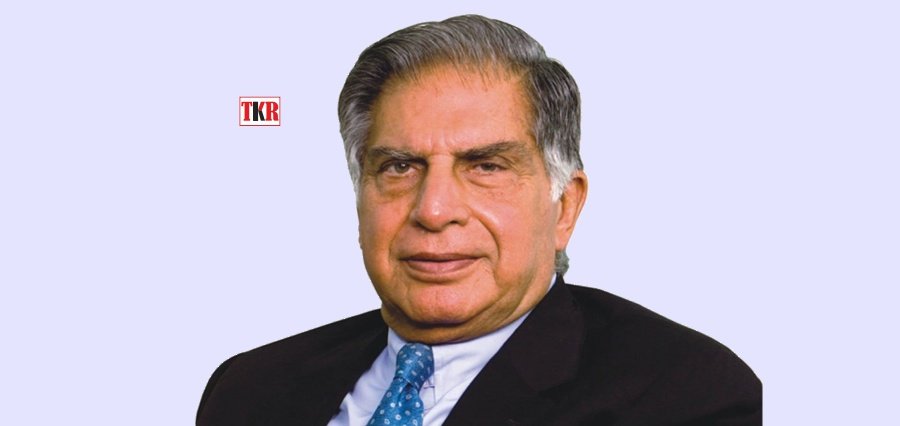With its blessings of a rich educational legacy, India has been privileged to witness the efforts of some of the renowned educators who are selflessly striving for society’s welfare. From its traditional adversities to modern challenges, all were tackled by the pursuit of passionate educators who dream of an ideal educational ecosystem. The current ecosystem of education in India is the byproduct of these efforts. But what makes the country special is to see the continuation of these efforts even in today’s time.
Dr. Lalit Kumar Gupta, Director and Principal of Shyamlal Saraswati Mahavidyalaya, is one of those leaders in education trying to replicate those selfless efforts. Efforts for which the Indian education stands for. His long journey in this field is a source of inspiration to aspiring leaders.
Throughout his career, he has demonstrated a seamless integration of academic expertise and administrative acumen. With over two decades of experience, Dr. Gupta has held various significant positions in the education sector.
He served as a lecturer and HOD of Physics at a rural area degree college, where he later assumed the role of vice principal. During his tenure, he gained valuable insights into the education and college management systems, recognizing the need for a conducive environment to foster the holistic development of students and teachers.
Dr. Gupta’s vision for creating such an environment culminated in his current role as the Director and Principal of a PG College, where he continues to drive initiatives for the overall advancement of students and educators.
A Distinguished Educationist
Dr. Lalit Kumar Gupta is a distinguished educationist who has made significant contributions to the field of education. He started his career as a physics lecturer at MIT Engineering College in 1999 and later joined a rural area degree college as a physics lecturer in 2000. He worked there for eight years, serving as HOD Physics and Vice Principal. In 2008, he entered the Engineering College domian and worked as an Assistant Professor, Associate Professor, Professor, and HOD of Applied Science for 15 years.
During this period, he mentored around 100 engineering students for their Minor projects and helped them secure government DST and MSME funding. He also gained expertise in technical concepts and Sill development field and served in administrative roles. Currently, Dr. Gupta is the Director and Principal of Shyamlal Saraswati Mahaviadyalaya (PG), where he has implemented a new education policy for students and faculty members.
Creating an Impeccable Learning Hub
The institute has a vision to be a leading institution of higher education that fosters intellectual curiosity, critical thinking, and personal growth in students and empowers them to contribute positively to society.
It aims to provide quality education to students from diverse backgrounds and equip them with the knowledge, skills, and values necessary for success in their chosen careers. The institute strives to create an inclusive learning environment that promotes innovation, creativity, and collaboration and prepares students to meet future challenges. It is committed to maintaining high academic standards, promoting research and innovation, and providing all its stakeholders with opportunities for personal and professional growth.
Overcoming Educational Adversities
When Dr. Lalit started his career in 2000 in higher education (Degree College), which is situated in a rural area of a district place where resources are limited, like electricity, internet—etc., it was a challenge for him, but with his hard work and determination, he successfully crossed this hurdle.
Currently, he is facing some challenges in his mission to impact lives with education. These challenges are:
- Being well-versed in students.
- Recognizing the various capacities and learning styles of the students.
- Supporting and motivating them when they struggle academically and must contend with peer and family pressure.
- Establishing a productive line of communication between the management, parents, and students.
A good teacher possesses four qualities: assertiveness, perseverance, patience, and politeness. Dr. Gupta believes that educators should embrace these difficulties and rise to the occasion to make a difference and change society as a whole.
Enhancing Learning Experiences with Pioneering Efforts
Dr. Gupta has been at the forefront of integrating technology into teaching-learning. His pioneering efforts in this domain have significantly enhanced the learning experience for students. In 2008, he introduced teaching through a projector at an engineering college, where he utilized ICT-based methods to teach nanotechnology and fiber technology concepts. This innovative approach marked the beginning of a transformative journey toward teaching learning technology for pedagogical advancement.
Engagement in extracurricular activities positively impacts academic performance. Dr. Gupta says that over 80 per cent of young people participate in extracurricular activities. Participating in extracurricular activities provides youth valuable chances to build social skills, good peer relationships, and the foundational knowledge needed to succeed academically.
The majority of the curriculum outcomes that instructors use to gauge their student’s progress are based on their academic performance. But it’s become increasingly crucial that youngsters get the chance to study far more than simply the required material. Participating in extracurricular activities helps them improve their character, social skills, and understanding of the value of community engagement in addition to their academic performance.
A Rewarding Journey
Mr. Lalit Kumar Gupta has received numerous awards for his contribution over the years, some of them are:
- Best Teaching Award by Shyamala Saraswati Mahavidyalaya 2007
- Long Service Award by Krishna Engineering College 2020
- Awarded for Best Contribution to Admission to Krishna Engineering College 2020.
- Innovative Professor of the Year awarded by Cabinet Minister Delhi Govt .
- Awarded by Maharashtra Education Department for best professor for his contribution to the education and skill development sector
- Special edition of his profile in the Height of Success Magazine 2024
Excelling at the Little Things
Throughout his career, Dr. Gupta has witnessed a significant number of individuals, both inside and outside the field of education, climb the success ladder only to realize that they were standing against the incorrect wall. They found that a significant portion of their time and energy had been lost because their objectives did not fit with their beliefs and purpose.
Dr. Gupta believes that to have a beneficial influence on the lives of numerous students, educators must be open to vulnerability and growth, which will increase their capacity. Their mission is centered on their fervent desire to provide the greatest possible care for the student, and they understand that when they excel at the little things, big things will follow.
Providing Richer Learning Opportunities
Dr. Gupta’s long-term educational Goals to be achieved by 2025 include:
- Assuring the quality of academic curricula.
- Establishing institutions and organizations relating to education and health, expanding, strengthening, and building the capacity.
- Producing highly educated and technically capable workers in response to national and worldwide demand.
- Introducing new disciplines, emerging sciences, and technologies to provide students with the most up-to-date information, skills, and competencies.
- To have improved and strengthened college-community partnerships.
- To improve access to community-oriented education through the growth of primary health care clinics.
- To improve the use of information and communication technologies (ICTs) for expanding the quality of education.
When teachers know what inspires and engages their students, they may recognize that each student is a unique individual with a learning style that can be used and accommodated to provide richer learning opportunities for everyone.





